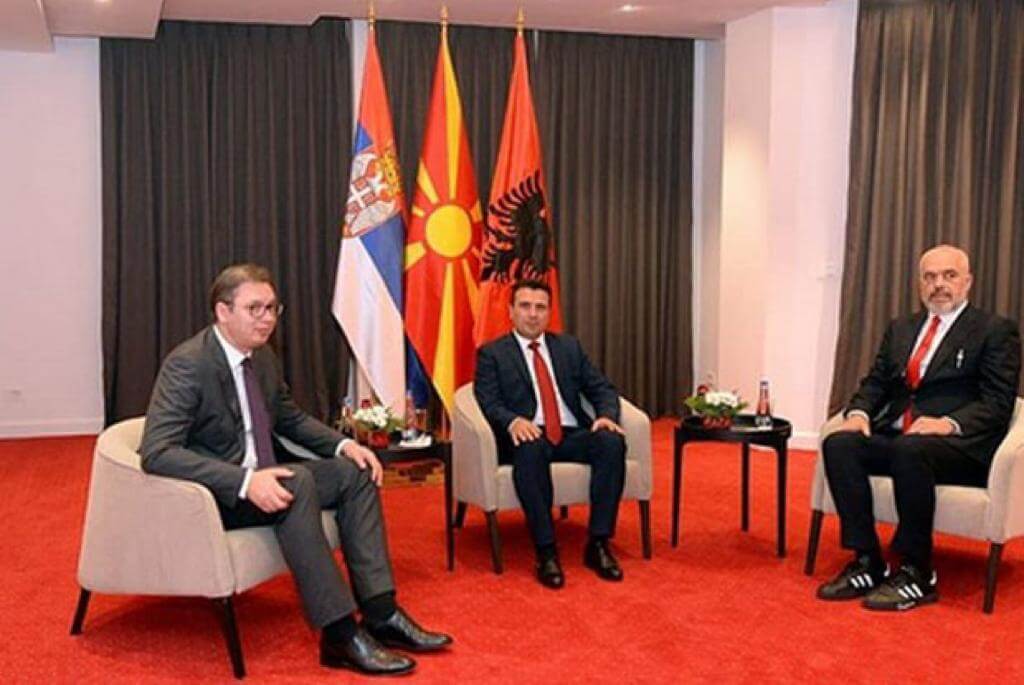The world simply does not expect good news from the Balkans. They are not used to it, and we can understand them considering everything that happened in the 90s and later. However, it is high time for rehab, because the therapy is already on the table, you just need to take it, because it has passed all the important tests.
Good and very important news is coming from the Balkans, so good and important that the West still has a lot of caution towards it, because it does not fit into everything they have known about our region, so far. In fact, it does not fit into the image that they themselves created, persistently, carefully and systematically, leaving no hope that this, according to them, tragic European periphery will ever get out of the mud. This is how they have been analyzing, concluding and evaluating for decades, while getting their doctorates, progressing, earning money, gaining fame and reputation on this horror story. The good news from the Balkans is not good for this small but very influential media-scientific-research combine that lives off the Balkans and its troubles.
Happiness began to deteriorate a little over a year ago, when Aleksandar Vučić, Edi Rama and Zoran Zaev in Novi Sad, at the initiative of the Serbian president, launched an initiative on the Balkan “mini-Schengen”, an interstate zone in which there are no barriers to goods, services, investment and labor. Shocking, but only for those who spread the story that the war is still going on in the Balkans. It is shocking, because it is impossible for the Balkans, without any pressure from the side, and especially on the initiative from Belgrade and Vučić, to start the most European of all European stories, open borders.
It is paradoxical that this concept was taken seriously by the most powerful Western governments, in Washington and Brussels, as a rule conservative and difficult to move when it comes to the Balkans, and the “free-minded” and dynamic European NGO sector, influential media and researchers are playing with the idea and trivializing it. The “mini-Schengen” was certified by the American seal at the September meetings in the White House, when Kosovo was “pushed” into the entire project. And Brussels has confirmed its justification with nine billion euros, intended to raise the economic performance of the Western Balkans. This is the first real and large European money to arrive in the Balkans “in one piece” and is a direct consequence of the Novi Sad declaration of Vučić, Rama and Zaev, and an even more direct reaction to the renewed American interest in the Balkans.
While politicians and officials in the West understand well and react even better to intra-Balkan integration, interpreters of their moves (analysts, media) continue to shake their heads suspiciously and to put the non-existent political context into the whole project. For Timothy Less, a researcher from Cambridge, there is no doubt that the Balkans will move towards a political community in the coming years, he even gave it a name – EU Yugoslavia! A clear attempt to take the title from the previous champion in the competition for the visionary name of the future Balkans – Yugosphere, which was coined by the “Economist” journalist Tim Judah, also a long-time famous interpreter of Balkan traumas. And nothing more than that. Just as “Yugosphere”, “EU Yugoslavia” has brought nothing new in the interpretation of new Balkan movements, except the satisfaction of their godparents who are widely quoted (especially in the Balkans) and glorified for their “hit in the center”.
Even the reputable “Oxford Analytics”, in its recent bulletin, dedicated to the new Government of Serbia, does not step out of similar stereotypes, blindly relying on the views of its biased local associates from Belgrade. And they, and with them “Oxford analytics”, recount the black-and-white bazaar gossip according to which Vučić was afraid of the election boycott of the “majority of the opposition”, that the composition of the new government renounces Russia, that the SPS is the biggest loser… Such interpretation, as well as underestimation of the scope of “Mini-Schengen” are a reflection of inadmissibly superficial dealing with the Balkans, by those whose words still have a strong influence on the European perception of events in Serbia and in our region. Their inertia in the interpretation of the Balkans is already growing into direct production of damage, because it is increasingly at odds with reality, which is changing rapidly.
“Mini Schengen”, which from the very beginning is not exactly “Schengen”, and in recent months is no longer mini, is a pure economic concept, without any political connotations. Whatever happens to it in the future, it will not grow into a political community, nor does any of its “founding fathers” want that. On the contrary. Secondly, it is a pure European concept, so far, the strongest answer to the old EU condition that the Balkans must first self-integrate from within, if it wants to join the Union. In that sense, “Mini-Schengen” is a historical step out of the long-term futile practice according to which integrations were only talked about and toasted, without anything concrete being done, which is why the Balkans are still far from full EU integration after 17 years. In order for this not to remain a permanent situation, internal integration has been initiated according to the EU model, so while there is turmoil within Europe about its internal functioning, and especially about new enlargement, at least make it easier for people and economies in the region to wait for final accession. It may still be too much and too fast for long-term “Balkan experts”, but it may also be too different from their traditionally dark predictions on which they built their careers and long-term influence and enjoyed the financial benefits of various funds for the Balkans. As it was not in the interest of the experienced lawyer from the famous story to quickly end the lawsuit, during the delay of which he educated his son.
